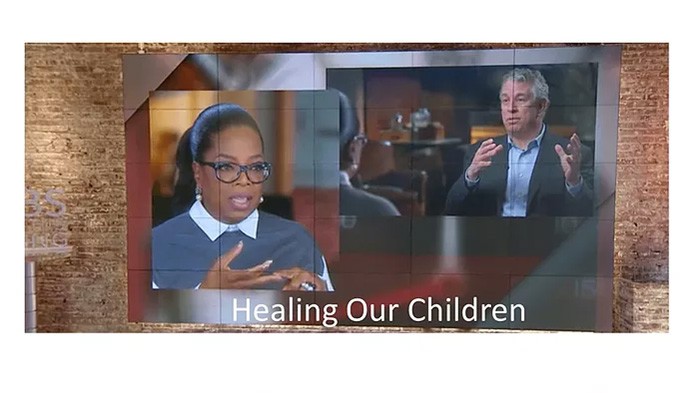Did you catch the 60 Minutes piece Oprah reported on about treating childhood trauma?
If not, it’s the story of an orphanage from the 1850s that 168 years later turned into a facility that helps to treat children who are traumatized, abandoned, and neglected and their findings as they’re still in operation today.
In short, the piece explains that our brains are wired to try to make sense of the world. The brain of a child is by nature more sensitive to chaos, which can leave long-term health effects if not addressed.
While the majority of our students don’t have as severe of issues that the children in the piece reported, I think it’s fair to assume that all children are sensitive to the chaos that is going on in our world.
How this story also applies to all children is in the strategies that they use to help.
“It boils down to something really simple and it’s relationships.”
The idea of empathizing and understanding what has happened to the child, knowing their story and who they are, is of the utmost importance to the adults who interact with them. Their network. Their support system. All of them approach the child from a point of understanding and support.
Which is why we intentionally choose to keep our student to teacher ratio so low. Our children need to be seen and heard.
It is also why arbitrary behavior management systems in traditional schools do not work. They are ways to shut down surface level behaviors instead of dealing with what’s causing the behavior and nurturing them through their struggles.
This is what good teachers do all along. They understand that they’re not in control of what happens to the child that walks through their doors, but they are in control of how they react and if you’re able to do so in the good and bad moments, it leads to genuine growth.
Saint A’s uses group learning and discussions to help give their residents the tools they need to own their own story. To help them heal from their individual traumas. The ability to understand and rewrite their own stories and eventually overcome.
While the degrees vary, we all will face challenges in life and could learn from this piece.
What isn’t lost on us is that having a “team” of supportive people who genuinely care about us is another reason we’re excited to have another family meal this Wednesday. Some kids won’t have their parents there, but we have such a strong “family” that none of them will be alone.
We know that a strong “family” leads to more learning but it also leads to our kids learning to overcome challenges in life.


